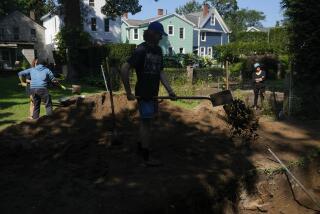Blacks Exploring Ways to Trace Their Ancestry
- Share via
CHICAGO — Tracy Smiley-Morris often listened to her Irish-and Italian-American high school friends talk about their families’ histories while she stood silent. Like many African-Americans, she didn’t know her roots.
On a recent Saturday, she was among several hundred people looking for tips on tracing their ancestors at the 11th annual Family History Conference of The Afro-American Genealogical and Historical Society of Chicago.
“I think it’s important to know where I came from and where I’m going,” said Smiley-Morris, 24, who recently returned to college after military service.
The popularity of the Alex Haley book “Roots” and the 1970s television miniseries it spawned have prompted an interest in genealogy among many Americans.
But genealogy is especially formidable for blacks. Census data are helpful only back to 1870, and it’s almost impossible for most blacks to discover their ancestral “Kunta Kinte,” the character in “Roots” who was captured in Africa and brought to America on a slave ship, said Tony Burroughs, president of the Chicago genealogy group.
But the first step in the search is to talk to living relatives, genealogists say. African-Americans also should be aware that 75% of them have at least one white ancestor, and 15% have predominantly white blood lines, according to “The Source: A Guidebook to American Genealogy.”
People wanting to delve deeply into their pasts could visit the National Archives in Washington and pore over state and county birth records, retirement records, marriage certificates and property deeds, said James Dent Walker, a founder of the Washington-based Afro-American Historical and Genealogical Society.
More to Read
Sign up for Essential California
The most important California stories and recommendations in your inbox every morning.
You may occasionally receive promotional content from the Los Angeles Times.













